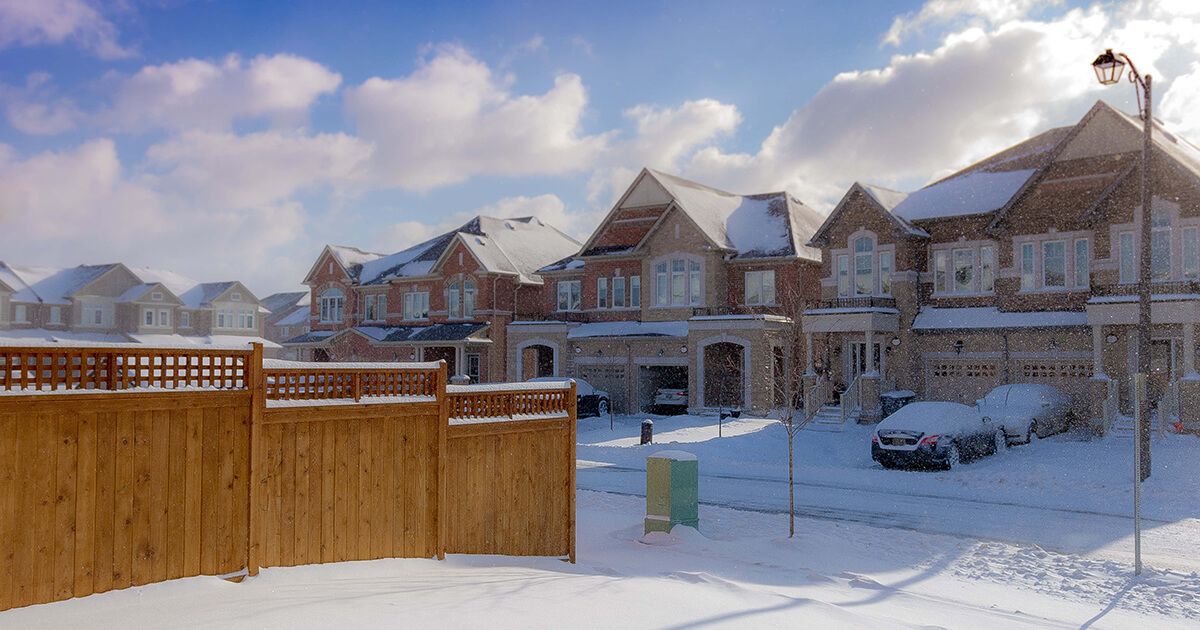
Every homeowner likes to have a cozy home in the winter – and this means the temperature should be nice and warm, even if there is a cold snap going on outside.
This is where the heating system component of an HVAC system is so valuable. However, if there are issues with the heating system, such as if it is running more often than usual, isn’t heating to a consistent temperature throughout a space, things can get uncomfortable and expensive quite quickly.
Thankfully, there are solutions.
In this blog, we’re examining the major benefits of getting a heating system upgrade. We are also looking at the various signs that indicate an HVAC system replacement may be just around the corner.
Do not hesitate to contact us for any of your HVAC needs, including an HVAC system upgrade or replacement. Our experienced team of HVAC technicians is one phone call or email away, so don’t be afraid to reach out.
Although running an older HVAC system can work to keep your home at a comfortable temperature and increase air quality, provided it is still within its useful life, there are key benefits to upgrading to the latest HVAC system.
Here are details on the most common and substantial benefits of heating system upgrades:
When you have an upgraded heating system, it does not have to work as hard to keep your home at a comfortable temperature or to maintain its air quality. This can have a couple different impacts.
One is that since the system is using less energy and power, your utility bills are likely going to get lower – saving on costs. Additionally, updated HVAC systems operating at peak efficiency are also quite beneficial for the environment – they do not add to pollution nearly as much.
When HVAC systems have to work harder to heat, cool, or ventilate, inconsistencies can begin to arise. For instance, during the cold winter months, an older HVAC system may heat certain rooms more than others, creating cold spots. In the summer, homes can be hotter than they should be with an air condition unit running.
However, upgraded heating and HVAC systems, as mentioned, run more efficiently. This helps them create a comfortable indoor environment much easier than older systems. In other words, their performance is increased.
The longer an HVAC system goes without being updated, the more likely it is that the accompanying warranty will expire. An expired HVAC warranty means that any repairs or maintenance must be paid for out of pocket, which can get quite expensive, especially for older systems.
Updating your HVAC system according to the recommended schedule can help keep the warranty valid. Thus, as you would expect, the cost of necessary repairs and replacement would be covered – leaving fewer out of pocket expenses for homeowners.
Maintaining and updating your heating system regularly can significantly improve indoor air quality. For instance, updates may upgrade the air filters in your home. An updated system also performs tasks like removing pollutants and allergens more efficiently. Thus, occupants breathe more clearly and don’t tend to sneeze (or get sick) nearly as much.
Updating your HVAC system on a consistent schedule helps extend its useful life. This may mean that instead of lasting for 10 years, an HVAC system could last for 20 years with proper maintenance and updating. Thus, homeowners can delay the cost of an HVAC system replacement.
Keeping up with the necessary upgrades and maintenance can provide significant peace of mind to homeowners. This is because there is less worry about an unexpected repair bill coming up – or an expensive one, for that matter.
It also provides comfort in knowing the HVAC system will function the way it is intended, which means no abnormally hot days because the air conditioning has failed or cold spots in the winter because something is wrong with the furnace.
Every HVAC system, no matter how good it is, will eventually need to be replaced, just like any other system or home appliance. It is a good idea to replace your HVAC system before it stops working completely. Thus, the questions stands:
How do you know when you need an HVAC system replacement?
Here are details on just some of the common signs you may need to replace your HVAC system sooner rather than later:
Most HVAC systems will make some kind of sound when they start up and shut down. The sound is often quite low and can even go unnoticed if you are not paying attention.

However, many sounds are not normal. Unusual or loud sounds to watch out for include:
Hearing these can indicate several potential issues with your HVAC system, such as a loose part. Of course, in some instances, the sounds may mean that a replacement is on the horizon.
Unpleasant smells coming from your HVAC system can be a sign of significant issues. Must odors, for instance, can be a sign that mold or mildew is growing within the ductwork. This, thankfully, can often be rectified with professional duct cleaning. However, certain smells can be signs of a serious HVAC issue that can result in a replacement. Examples of this include the smell of melting plastic or burning metal.
No matter the smell, however, it is vital to have an experienced HVAC technician take a look at your HVAC system to appropriately diagnose the issue at hand.
A well-functioning HVAC system should help reduce the energy bill you receive every month. Thus, if you are suddenly receiving high energy bills that do not line up with the temperatures outside your home, you HVAC system may be working much harder than it should. Remember, the less efficient your HVAC system is, the higher your energy bill is going to be.
An HVAC system that is working much more than it should will require more repairs. These repairs will happen more frequently as well. The cost or frequency of HVAC repairs can get to be too much, which is when an HVAC system replacement will be necessary.
The length of time your HVAC system is supposed to last can vary. It depends on the quality of the HVAC installation as well as how well you have been taking care of it. Thus, an HVAC system that has had regular maintenance appointments should last a lot longer than one that only gets emergency HVAC repairs.
However, if you have an older HVAC system, such as one that is 12 years old and repairs are starting to pop up more often, it may be worth simply getting the whole system replaced.
At a certain point, you may find that you are spending more and more money to maintain your HVAC system. This means the replacement parts are costing more and more costly repairs are starting to happen, among other things. When this happens, the need for an HVAC system replacement is likely just around the corner.
As has been mentioned several times in the other signs, a clear indicator that you may be in need of an HVAC system replacement is that you’re dealing with an increased frequency of HVAC repairs. For instance, you may find that instead of an annual HVAC maintenance appointment, you are calling for repairs every few months because something is wrong with your system.
If your HVAC system cannot maintain a consistent temperature throughout the entirety of your home, you may need to replace your HVAC system. This is because two reasons for inconsistent temperatures include an HVAC system that is either too large or too small for the home, or one with older technology.
In both cases, the only way to rectify the issue of inconsistent temperatures is to update (replace) the HVAC system to one that is both the right size for you home and one with newer technology. Both will allow the HVAC system to work efficiently and provide one consistent temperature throughout your home.
If you want to, your HVAC system should be capable of turning off. Think about it this way: when there is a cold snap in the winter, your HVAC heating system is likely going to be running more to keep your home at a nice and cozy temperature. However, if it keeps running and won’t turn off after the cold snap has passed, you may have a problem.
It could be a sign that the unit:
The added costs of an HVAC system that cannot turn off will eventually become too much to handle – thus, if this happens and simple fixes aren’t working, you may need to replace the whole system.
If you’re beginning to see even one of the issues discussed above more and more often lately, or if you are dealing with another HVAC issue, you should call an HVAC professional and book an appointment.
A licensed HVAC technician can thoroughly examine your entire HVAC system and diagnose the underlying problem you have. They can also recommend whether it is worth repairing your system, upgrading it, or if you need to get an HVAC system replacement.
Do not hesitate to contact us for any of your HVAC needs, including an HVAC system upgrade or replacement. Our experienced team of HVAC technicians is one phone call or email away, so don’t be afraid to reach out.
